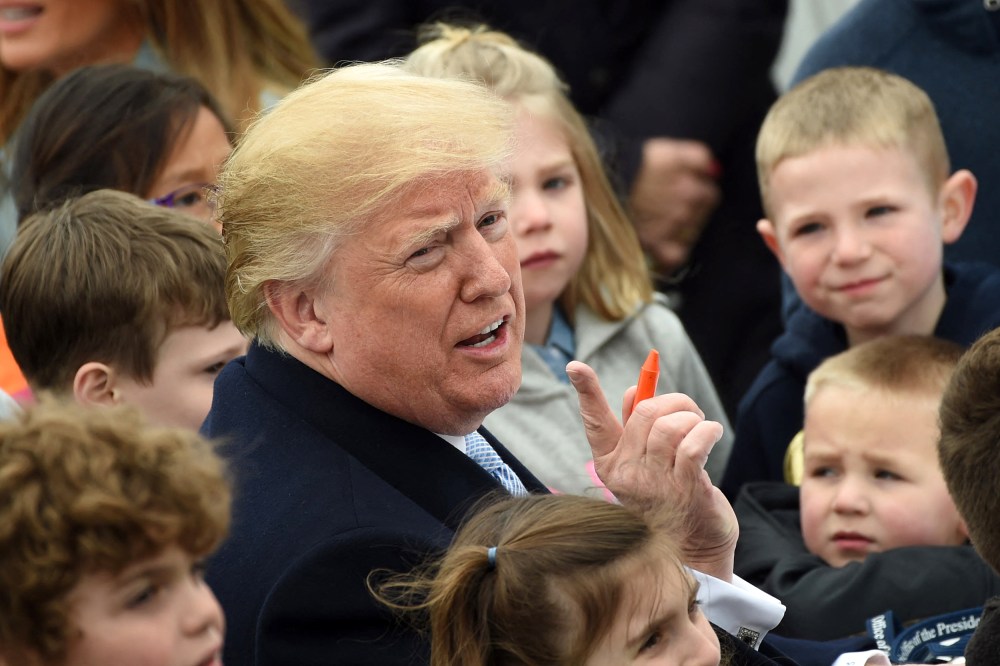America has long had daddy issues with the presidency, but now they’re threatening to undermine democracy.
It started with George Washington: “the father of our country,” as we’re all taught, though he had no children of his own. In recent years, it’s included Bill Clinton, whose biological father died before he was born and who fought with his stepfather; George W. Bush, one of two presidents whose fathers were also presidents; and Barack Obama, who wrote a whole book about a father he barely knew.
He’s convinced his supporters that he’s something of a surrogate father to them — and the country.
For his part, Donald Trump took over his father Fred’s real estate business and adopted Fred Trump’s strict “winners and losers” mentality. He’s a father of five kids by three mothers. And he’s convinced his supporters that he’s something of a surrogate father to them — and to the country — in a troubling use of rhetoric.
At first, the framing was just about Trump returning to the White House, which was unsettling but made a bit of sense. At a pre-inauguration event, musician Kid Rock added the words “daddy’s home” to the song he was performing. Around the same time, die-hard MAGA Republican Rep. Byron Donalds of Florida said on a Fox News panel “Daddy’s back,” Republican Rep. Lauren Boebert of Colorado tweeted “Daddy’s home,” and conservative influencer Charlie Kirk posted, “Dad is home.”
Things heated up in June. When discussing Trump’s expletive-laden comment on Israel and Iran, NATO Secretary-General Mark Rutte used a metaphor: “Daddy has to sometimes use strong language.” Trump ate it up with a spoon, imitating it for the cameras later. “He did it very affectionately, ‘Daddy, you’re my daddy,’” he said. The White House then posted video of Trump set to Usher’s song “Hey Daddy (Daddy’s Home),” while the campaign sold red T-shirts with the word “DADDY” beneath his mug shot.
But for some of Trump’s fans, there’s a darker undercurrent to the rhetoric.
After the California wildfires burned down his home in Malibu, conservative actor Mel Gibson described Trump visiting the state as “like Daddy’s arrived, and he’s taking his belt off.” At a 2024 campaign rally, conservative commentator Tucker Carlson compared the U.S. to a defiant 15-year-old girl whose angry father has come home go give her a “vigorous spanking” for being a “bad little girl.”

That lines up neatly with an argument cognitive linguist George Lakoff made in his 1996 book “Moral Politics” that American politics is built around an overwrought parenting metaphor, with conservatives serving as the “strict father” and liberals as the “nurturant parent.”
This frame explains a lot about Trump’s political agenda. Just as the strict father defends the family against outside threats, Trump pledges to protect the country from immigrants that he casts as violent criminals. His cuts to everything from foreign aid to the Federal Emergency Management Agency to Medicaid are framed as “tough love” that will teach self-reliance. And, of course, strict fathers expect total obedience from their children — which has unsettling implications for the future of American democracy.
There are several ways to respond.












